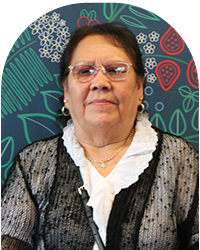About the Legacy Fund
Canada’s steps toward addressing the intergenerational impacts of colonization and racism against Indigenous peoples — in other words, reconciliation — are just beginning, but some landmark settlements have been reached.
In 2009, Indian Day Schools Survivors began legal action against the Federal Government, seeking compensation for abuse and other damage from forced attendance at Indian Day Schools. In 2019, they entered into a $1.47B settlement, with $200 Million earmarked for the MDSSC and its Legacy Fund for Survivors, their children, and grandchildren. MDSSC’s unique cross-Canada engagement sessions aim to obtain input for the Legacy Fund’s implementation and administration from approximately 120,000 people.
The voices of Day School Survivors must remain central through this process — this is the commitment of MDSSC’s Board, as it is also their hope that MDSSC and the Legacy Fund will create enduring outcomes of the McLean Federal Indian Day Schools Class Action settlement and will be a major source of support for Survivors and their families.
Engagement process
The McLean Day Schools Settlement Corporation (MDSSC) will support Federal Indian Day School Survivors and their families through the $200M MDSSC Legacy Fund which will help fund projects that support language & culture, healing & wellness, commemoration, and truth telling. The MDSSC Legacy Fund Outreach Process was a way for Survivors and their families to give us input directly to help guide the implementation of the Legacy Fund and ensure it is responsive to their needs.
We sincerely thank all the Federal Indian Day School Survivors and their family members who participated. Your feedback is invaluable, and will help guide the direction of the MDSSC Legacy Fund, ensuring it serves as a key source of support for Survivors, their children and grandchildren.










